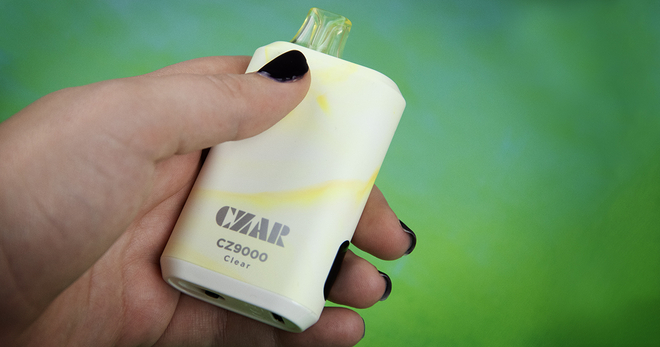What would happen if new tobacco products ‘akin to iPhones’ were sold in the U.S.?
The way that IQOS is marketed — as “sophisticated, high-tech and aspirational” — raises concern about the appeal of the new heat-not-burn tobacco product to youth and young adults, according to a Truth Initiative® study.
The Food and Drug Administration is expected to decide in coming months whether Philip Morris International can bring IQOS — a device that heats tobacco and produces an inhalable aerosol, instead of burning tobacco like traditional cigarettes — to the U.S., and if it can be marketed as a less harmful alternative to cigarettes. IQOS is currently undergoing test marketing in 30 countries, including Switzerland and Japan.
The study, published in Tobacco Control and believed to be the first independent study of IQOS marketing, examined consumer perceptions, attitudes and behaviors and determined the product’s potential appeal to youth and young adults. Researchers found that youth and young adults may be more interested in IQOS because of marketing efforts that portray the product as “akin to iPhones.”
Using data from an analysis of IQOS packaging and marketing materials, focus groups with adults in Switzerland and Japan and interviews with experts in youth culture and tobacco product use, the research determined that IQOS is viewed as:
- A “clean, chic product”: IQOS is being marketed as a “clean, chic and pure” product, and many find the product packaging to be appealing.
- Useful when socializing with nonsmokers: Some focus group participants used IQOS for socializing with nonsmokers.
- Less satisfying and having few health benefits: Focus group participants in both Japan and Switzerland reported that they were less satisfied using IQOS, compared with combustible tobacco products. Additionally, few reported any potential health benefits of using IQOS, compared with combustible tobacco products.
Philip Morris has not provided any data or information regarding how IQOS impacts youth — such as whether youth are using the product, how it appeals to youth and how promotional materials might impact youth use of the product — even from countries where IQOS is already on the market. While the company has indicated that it would market IQOS to cigarette smokers, the researchers point to “evidence from tobacco industry executives that suggests a strong desire … to take advantage of the declining consumer interest in combustible tobacco products and e-cigarettes.”
“Marketing efforts to portray [heated tobacco products] as sleek, exclusive items akin to iPhones could find success among American teens and young adults,” researchers wrote, “and researchers are already warning of growing interest and potential demand within new markets.”
Many other significant concerns exist about bringing IQOS to the U.S. While Philip Morris claims IQOS is less toxic than cigarettes, public health experts are concerned that the product may be another way to addict people, promote the use of more than one tobacco product at a time and re-normalize smoking.
In January 2018, an FDA advisory committee rejected Philip Morris’ claims that IQOS reduces the risk of tobacco-related diseases and is less risky than continuing to smoke cigarettes. The FDA must now review the company’s application to sell IQOS in the U.S. to determine whether it can be classified as less toxic than cigarettes. Truth Initiative recommends that the FDA require that Philip Morris submit additional information, specifically on the impact of its marketing and product development plans on America’s youth.
“As was historically done with combustible cigarette promotions, the marketing strategies used by [Philip Morris International] for [heated tobacco products] may seek to capitalize on the products’ potential among youth and young adults in the USA — a group for whom combustible cigarette use continues to decline,” researchers wrote.
For more information on IQOS, read “What are heat-not-burn cigarettes?” and “4 big concerns about selling IQOS heat-not-burn cigarettes in the U.S.”
More in emerging tobacco products
Want support quitting? Join EX Program
By clicking JOIN, you agree to the Terms, Text Message Terms and Privacy Policy.
Msg&Data rates may apply; msgs are automated.


